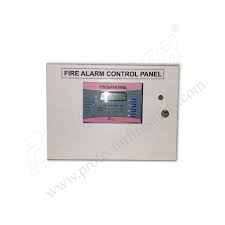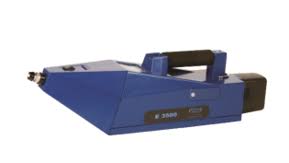Fire Panel System: Ensuring Swift Response to Emergencies
A fire panel system, also known as a fire alarm control panel or FACP, is a crucial component of any building’s fire protection system. Designed to detect and alert occupants to the presence of smoke, fire, or other emergencies, a fire panel system plays a vital role in ensuring the safety of individuals and property within a premises.
One of the primary functions of a fire panel system is to monitor various fire detection devices, such as smoke detectors, heat detectors, and manual pull stations located throughout a building. When these devices detect signs of a potential fire or emergency situation, they send signals to the fire panel system, which then activates alarms and alerts building occupants to evacuate safely.
Fire panel systems are equipped with sophisticated technology that allows them to pinpoint the exact location of a fire within a building. This information is crucial for first responders, as it enables them to respond quickly and effectively to the emergency situation. Additionally, modern fire panel systems can be integrated with other building systems, such as HVAC and access control systems, to further enhance safety and security measures.
Regular maintenance and testing of fire panel systems are essential to ensure their proper functioning in case of an emergency. Building owners and facility managers should schedule routine inspections by qualified technicians to check for any faults or malfunctions in the system and address them promptly.
In conclusion, a reliable fire panel system is an indispensable asset for any commercial or residential building seeking to prioritize safety and emergency preparedness. By investing in a quality fire panel system and adhering to regular maintenance protocols, building owners can rest assured that they have taken proactive steps to protect lives and property in the event of a fire.
Enhancing Safety: 6 Key Advantages of Fire Panel Systems
- Early detection of fires and emergencies
- Swift alerting of building occupants for timely evacuation
- Pinpointing the exact location of a fire within a building
- Integration capabilities with other building systems for enhanced safety measures
- Facilitation of quick and effective response by first responders
- Regular maintenance ensures reliable functioning during emergencies
Challenges of Fire Panel Systems: Cost, Maintenance, False Alarms, Integration Issues, and Detection Limitations
- Initial installation and setup costs can be high, especially for larger buildings.
- Fire panel systems require regular maintenance and testing to ensure proper functionality.
- False alarms can occur due to environmental factors or system malfunctions, leading to disruptions and potential complacency among occupants.
- Incompatibility issues may arise when integrating fire panel systems with other building systems or technologies.
- Limited effectiveness in detecting certain types of fires, such as slow smoldering fires, compared to more advanced detection technologies.
Early detection of fires and emergencies
Early detection of fires and emergencies is a key advantage of a fire panel system. By continuously monitoring various fire detection devices installed throughout a building, the system can quickly detect the presence of smoke, heat, or flames at the earliest stages of a fire outbreak. This early detection allows for immediate activation of alarms and evacuation procedures, providing occupants with crucial time to safely exit the premises and enabling emergency responders to swiftly address the situation before it escalates. The ability of a fire panel system to detect fires early not only minimizes property damage but, more importantly, saves lives by ensuring timely response to emergencies.
Swift alerting of building occupants for timely evacuation
The swift alerting capability of a fire panel system plays a crucial role in ensuring the timely evacuation of building occupants during emergencies. By detecting signs of smoke, fire, or other hazards promptly, the fire panel system can activate alarms and alert individuals within the premises to evacuate quickly and safely. This proactive approach not only helps prevent injuries and save lives but also minimizes property damage by facilitating a swift response to emergency situations. The ability to promptly notify building occupants of potential dangers underscores the importance of having a reliable fire panel system in place to enhance overall safety and emergency preparedness.
Pinpointing the exact location of a fire within a building
The ability of a fire panel system to pinpoint the exact location of a fire within a building is a critical advantage that enhances the overall effectiveness of fire safety measures. By accurately identifying the precise area where a fire has broken out, emergency responders can swiftly direct their efforts towards containing and extinguishing the fire, minimizing potential damage and ensuring the safety of occupants. This feature not only saves valuable time in emergency situations but also enables a more targeted and efficient response, ultimately contributing to better outcomes and increased protection for both people and property.
Integration capabilities with other building systems for enhanced safety measures
The integration capabilities of a fire panel system with other building systems offer a significant advantage in enhancing overall safety measures within a premises. By connecting the fire panel system with systems such as HVAC, access control, and surveillance systems, building owners can create a comprehensive safety network that allows for coordinated responses to emergencies. This seamless integration enables real-time communication between different systems, ensuring swift and efficient reactions to fire incidents or other emergency situations. Ultimately, the ability of a fire panel system to work in tandem with other building systems enhances overall safety protocols and contributes to a more secure environment for occupants and assets.
Facilitation of quick and effective response by first responders
The fire panel system’s ability to facilitate quick and effective response by first responders is a crucial advantage in emergency situations. By accurately detecting and pinpointing the location of a fire within a building, the fire panel system provides essential information that allows firefighters and other emergency personnel to respond swiftly and strategically. This rapid response can help contain the fire, minimize property damage, and most importantly, ensure the safety of occupants by enabling timely evacuation procedures. The seamless coordination between the fire panel system and first responders enhances overall emergency preparedness and reinforces the importance of investing in reliable fire protection systems for building safety.
Regular maintenance ensures reliable functioning during emergencies
Regular maintenance of a fire panel system is a crucial pro that ensures its reliable functioning during emergencies. By conducting routine inspections and tests, any potential issues or malfunctions within the system can be identified and addressed promptly. This proactive approach not only helps in maintaining the system’s efficiency but also enhances its responsiveness during critical situations, such as fires. Ensuring that the fire panel system is well-maintained guarantees that it will operate effectively when needed most, providing timely alerts and facilitating swift evacuation procedures to safeguard lives and property.
Initial installation and setup costs can be high, especially for larger buildings.
One significant drawback of fire panel systems is the high initial installation and setup costs, particularly for larger buildings. The expense involved in purchasing and installing the necessary equipment, wiring, and devices can pose a financial challenge for building owners and managers, especially when considering the scale and complexity of larger structures. Additionally, the need for professional installation and configuration adds to the overall cost of implementing a fire panel system. While the investment in a reliable fire panel system is crucial for ensuring safety and compliance with regulations, the upfront expenses can be a deterrent for some organizations looking to enhance their fire protection measures.
Fire panel systems require regular maintenance and testing to ensure proper functionality.
One drawback of fire panel systems is that they demand consistent maintenance and testing to guarantee their effective operation. This ongoing requirement for upkeep can be time-consuming and may incur additional costs for building owners or facility managers. Failure to conduct regular maintenance and testing can compromise the reliability of the system, potentially leading to false alarms or, even worse, a failure to detect a real fire or emergency situation. Despite being a crucial aspect of fire safety measures, the need for continuous monitoring and maintenance can pose a challenge for those responsible for ensuring the system’s functionality.
False alarms can occur due to environmental factors or system malfunctions, leading to disruptions and potential complacency among occupants.
False alarms are a notable con of fire panel systems, as they can occur due to various environmental factors or system malfunctions. These false alarms not only cause disruptions and inconvenience to building occupants but can also lead to potential complacency among them. When false alarms become frequent, occupants may start to disregard alarm signals, assuming them to be another false alert. This complacency can be dangerous, as it may result in a delayed response or evacuation during a real emergency situation, putting lives and property at risk. Therefore, mitigating false alarms through proper system maintenance and addressing environmental factors is crucial to maintaining the effectiveness and reliability of fire panel systems.
Incompatibility issues may arise when integrating fire panel systems with other building systems or technologies.
Incompatibility issues may arise when integrating fire panel systems with other building systems or technologies, posing a significant challenge for seamless operation and communication between different components. The diverse range of protocols and technologies used in various building systems can lead to conflicts and difficulties in establishing a cohesive network. This can hinder the effectiveness of the overall fire protection system and compromise the timely response to emergencies. Addressing compatibility issues requires careful planning, coordination, and potentially additional investments to ensure that all systems work harmoniously together to enhance safety and security measures within a building.
Limited effectiveness in detecting certain types of fires, such as slow smoldering fires, compared to more advanced detection technologies.
One significant drawback of traditional fire panel systems is their limited effectiveness in detecting certain types of fires, such as slow smoldering fires, when compared to more advanced detection technologies. Slow smoldering fires, which may not produce significant heat or smoke in the initial stages, can go undetected by standard smoke detectors integrated into fire panel systems. This limitation poses a potential risk as these types of fires can escalate quickly without early detection. In such cases, investing in more advanced detection technologies that are specifically designed to detect a wider range of fire types and characteristics can significantly enhance the overall fire safety and protection measures within a building.




